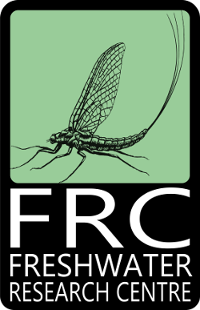JRS Announces New Grant Award to Develop a Rivers Information System for the Cape Floristic Region
Freshwater Research Centre (2017)
Developing a freshwater biodiversity information system for evaluating long-term change in rivers in the Cape Floristic Region, South Africa
Project Details
Project News
Last Updated: February 2nd, 2023
For information on the first phase of this grant, please click here.
Background
The unique freshwater biodiversity of South Africa’s Cape Floristic Region (CFR) is under enormous pressure from climate change, human activities, and invasive species. River health is deteriorating faster than it can be measured. The data that do exist, suggest that human impacts have, and continue to, severely compromise biodiversity. This can have serious adverse consequences for ecosystem services, such as the provision of food and safe, clean drinking water.
The region lacks an informative and accessible database for hosting river biodiversity data, impeding assessments of historic and current river conditions. Such information is critical to establish baselines and patterns of change, which are, in turn, necessary to help predict the impacts of future changes to the region’s biodiversity and ecosystem services. Legacy databases exist in several institutions that face challenges for continued maintenance, curation, open access, and conformity with current data standards.
Key Objectives and Activities
- Design, develop, and refine an information system for CFR rivers that enhances access to baseline biodiversity data and accepts new biodiversity data.
- Mobilize and import to the system baseline biodiversity data, including context information (e.g. available flow, temperature, etc.) to be included as GIS layers.
- Identify strategic long-term monitoring sites in the CFR.
- Train key organizations on how to use the system.
Video Progress Update, May 2020
With COVID-19 restricting travel and meeting with our grantees, JRS invited our projects to submit a short update for the JRS Board of Trustees. Though intended for an internal JRS audience, we loved these videos and share them here with permission. Enjoy!
Planned Outputs
- An information system for the CFR that provides access to existing freshwater biodiversity data across a range of taxa and taxonomic levels, facilitates inflow of current and future data, and facilitates assessments of long-term trends in river biodiversity and health based on these data.
- Identify, collate, validate, and successfully import key baseline biodiversity data sets, including records for 15,000 fish, 15,000 invertebrate, 300 algae, and 9-15 GIS context layers.
- Identify 45 strategic long-term monitoring sites in the CFR through quantitative data analysis and stakeholder consensus.
- Train representatives from 10 key organizations on how to use the system through workshops and an online module.
Planned Outcomes
Improved knowledge of CFR biodiversity and long-term river trends is required for more informed river management decisions and conservation planning projects. To this end, the Freshwater Research Centre hopes to develop a tool that will facilitate a consistent flow of biodiversity data from strategic sites on CFR Rivers. Data from a range of contributor types will be assembled into a reputable, full-featured, open-access database. They anticipate that the system would provide an engaging, interactive user experience and robust, informative outputs that can be interpreted by end users such as biodiversity managers.
Results to Date
- A Version 1 of the Freshwater Biodiversity Information System has been released.
- Nearly 10,000 fish records, 15 GIS context layers, and 7 base layers have been imported to FBIS.
- A Version 2 of the FBIS is in development.
- Representatives of 8 key organizations have participated in training and informatics skill development.
Project Director Biography
Dr. Helen Dallas has worked as a freshwater ecologist in southern Africa for 27 years. She holds a Ph.D. from the University of Cape Town, and is a Research Associate of the University of Cape Town and Nelson Mandela University. As a founding Director of the Freshwater Research Centre, Dallas has been instrumental in growing the non-profit, which undertakes collaborative research in the region by linking with universities, NGOs, government organizations and consulting firms, to advance the understanding of freshwater systems while developing capacity through internship and post-graduate programs. Dallas has worked extensively in southern Africa and has been instrumental in the development of aquatic biomonitoring protocols in South Africa, Zimbabwe, Botswana, Swaziland, Tanzania and Zambia. Her interest in the physico-chemical aspects of aquatic ecosystems directed her research into understanding biotic responses and vulnerability of aquatic organisms and ecosystems to global climate change. She is enthusiastic about the value of long-term data sets for freshwater ecosystems, especially in South Africa’s Cape Floristic Region biodiversity hotspot. Such data sets are vital for detecting critical ecosystem changes (such as losing ecosystem services and unique biodiversity) and managing these systems accordingly.
Notes from JRS
Human needs, conservation, and water resources collide in the Cape Floristic Region where threats to freshwater biodiversity and ecosystem services will only increase in the years ahead. JRS was pleased to award a planning to the FRC in order to improve the design of the information system and to secure the support and participation of regional institutions that hold data and will use the system and its output. We believe the current plan is robust from institutional and technical perspectives. When successful, we anticipate the FRC’s work will be a replicable technical model for other regions of South Africa and beyond and an institutional model of cooperation and data sharing.

